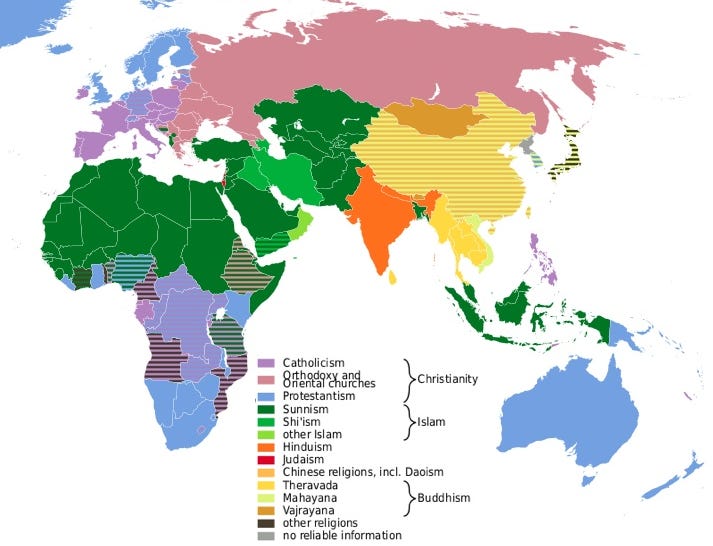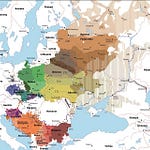On this monologue episode of Unsupervised Learning, Razib considers the different roles religion plays in various world civilizations. To explore this topic, he contrasts religion in the West (which includes Christendom and the Dar-al-Islam), on the Indian subcontinent and in China. Depending on which characteristics you focus on, these societies deploy and understand religion quite differently, even though religion as a cultural phenomenon is easily recognizable to all humans.
Razib argues that in India religious identity is important both to the individual and essential to civilizational identity. In China, usually, a specific religious identity is neither essential to individual self-conception nor is a specific religion critical to civilizational identity. Finally, in European Christendom and Middle Eastern Dar-al-Islam religious identity holds importance for both the individual and society as in India. Still, that religious identity has a proselytizing aspect that imposes uniformity (unlike in India).












